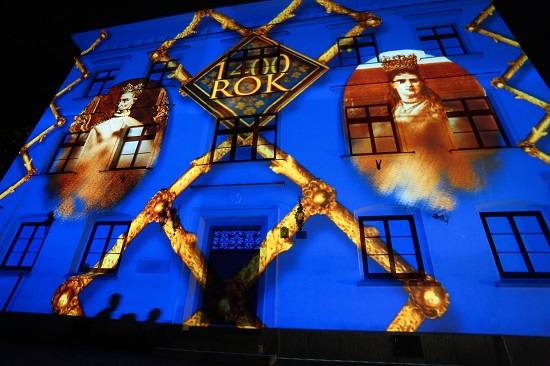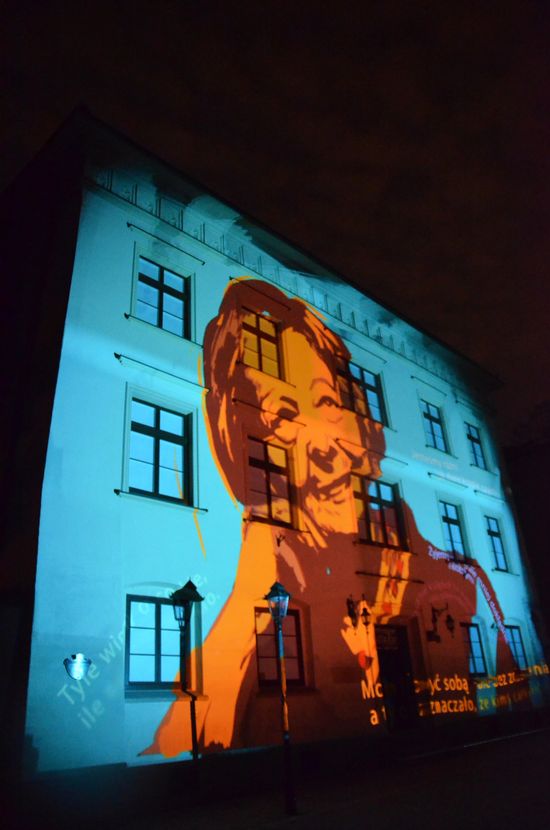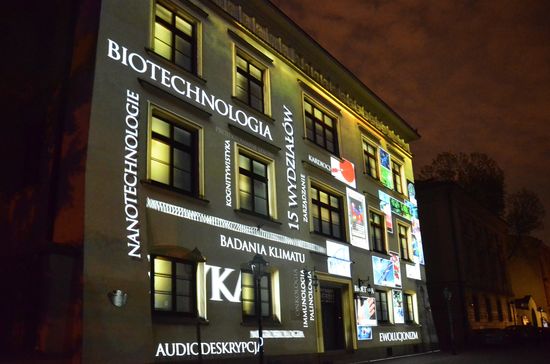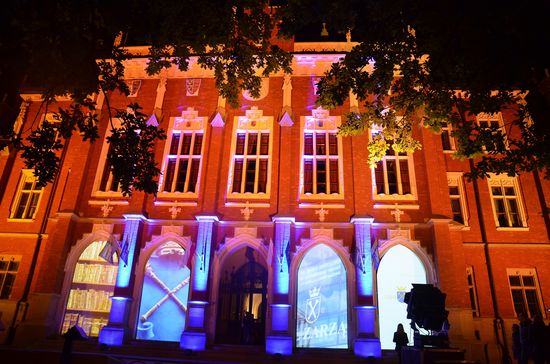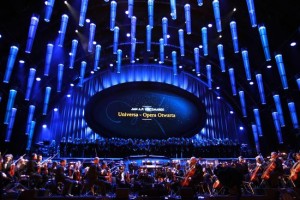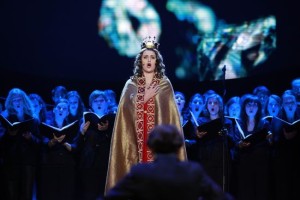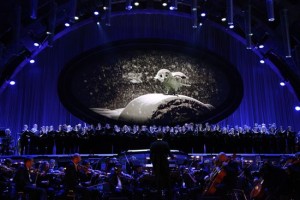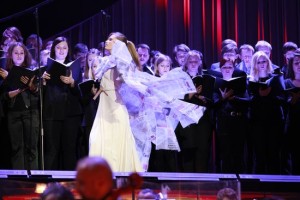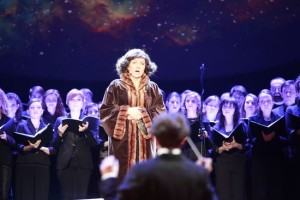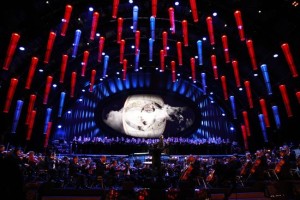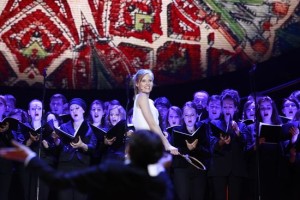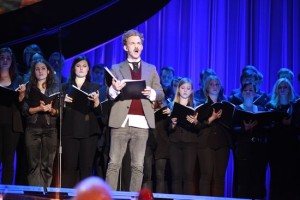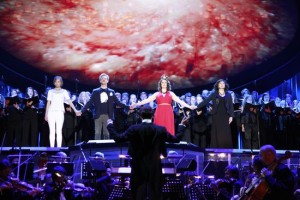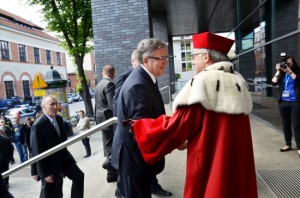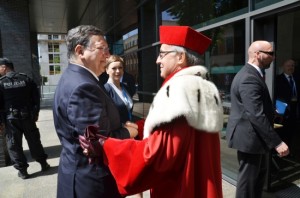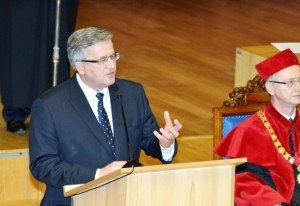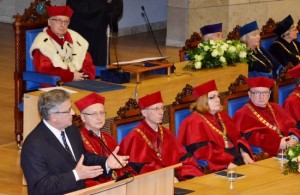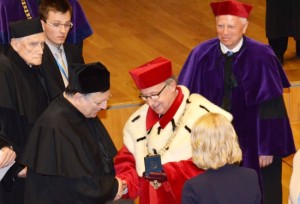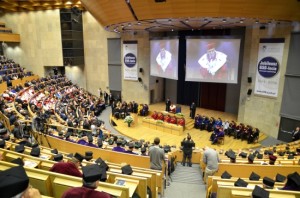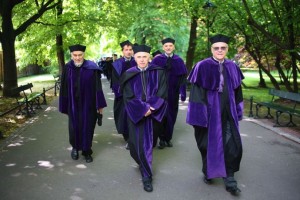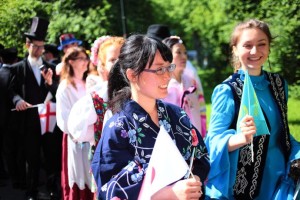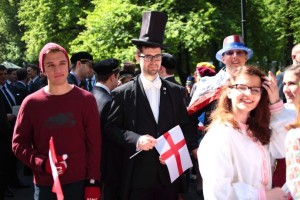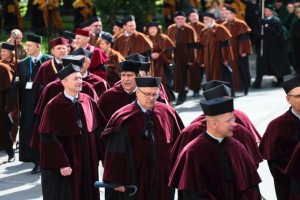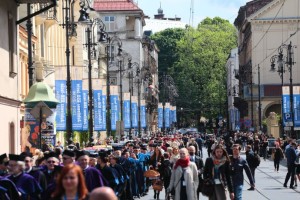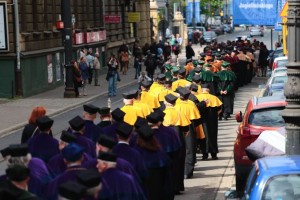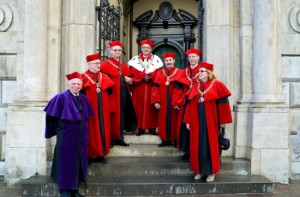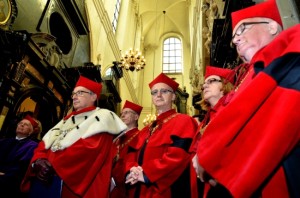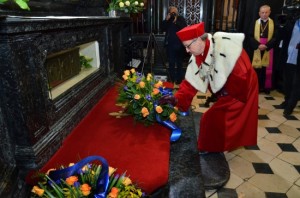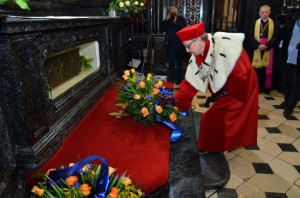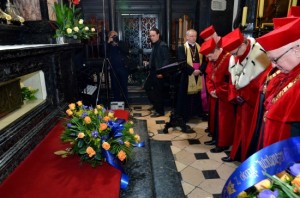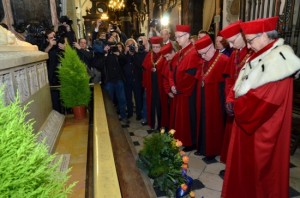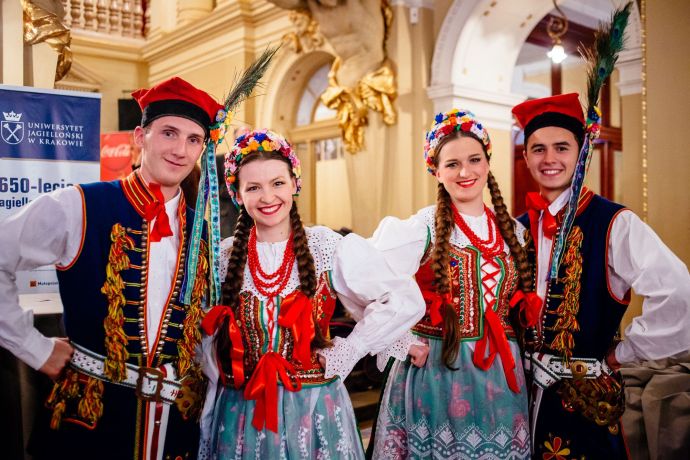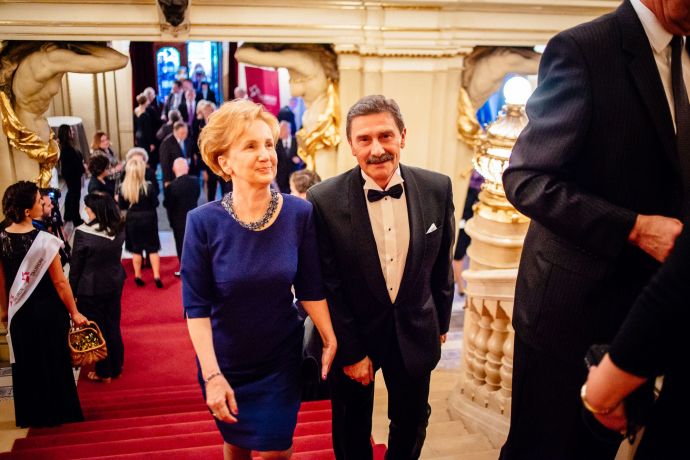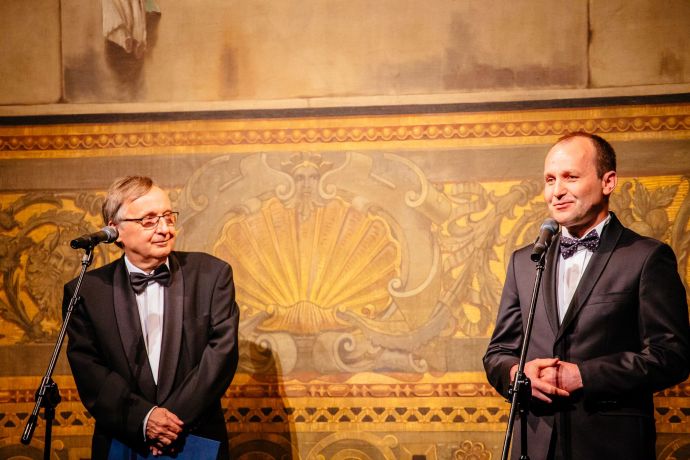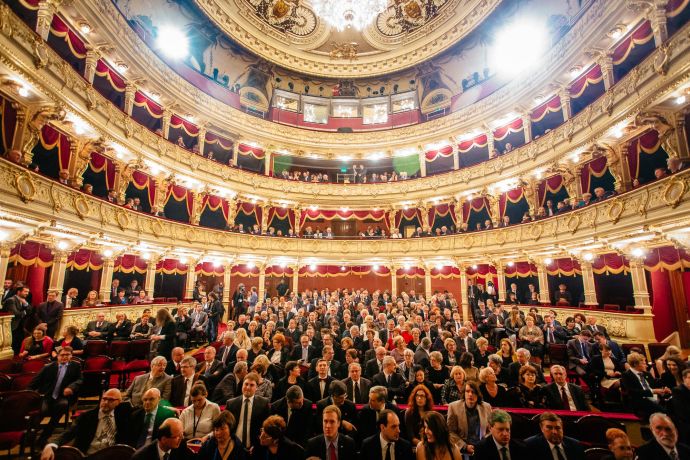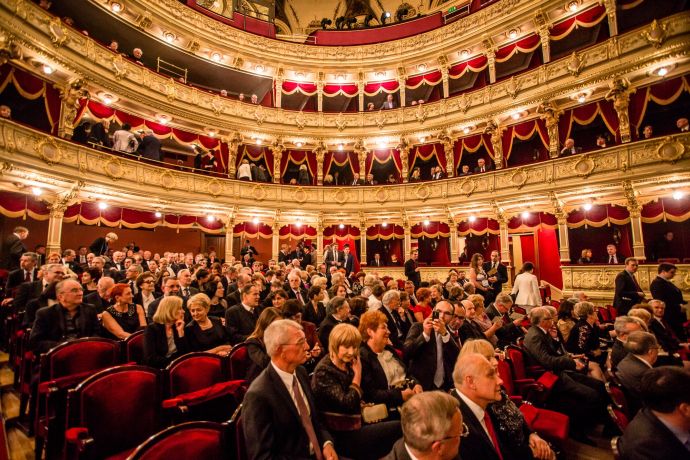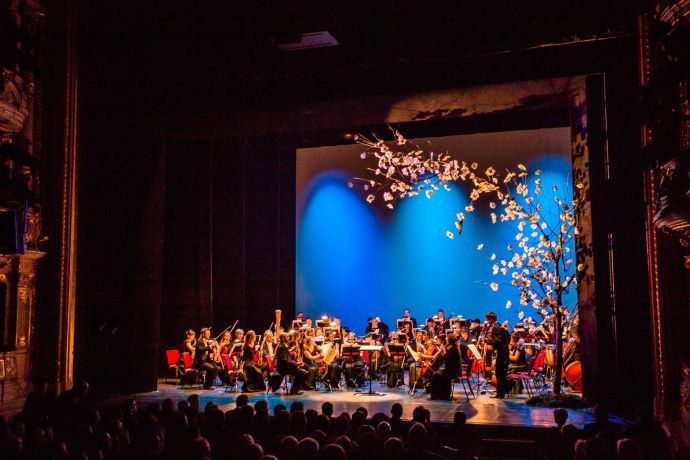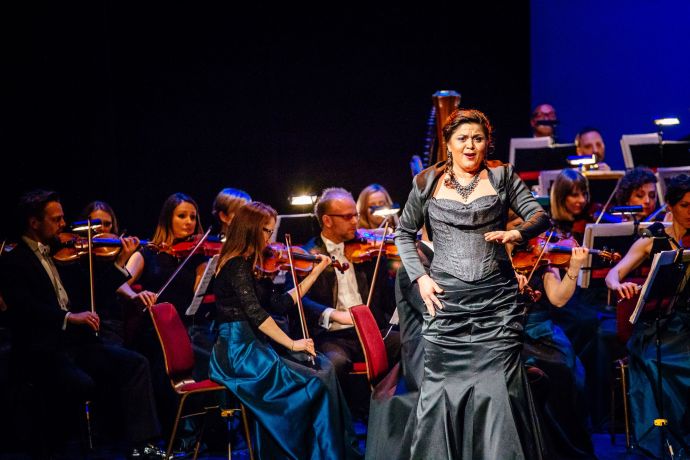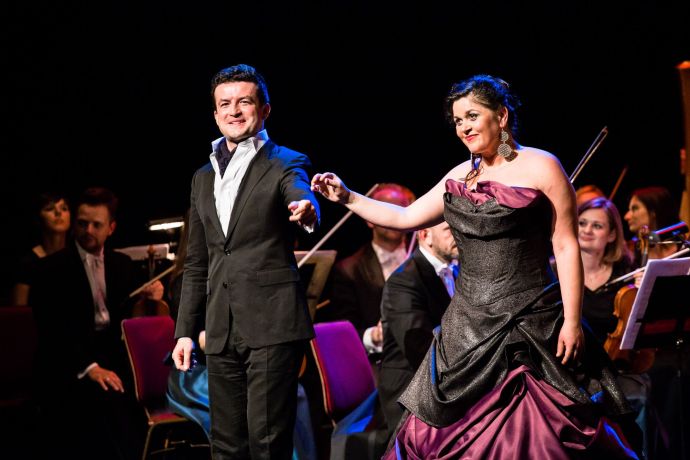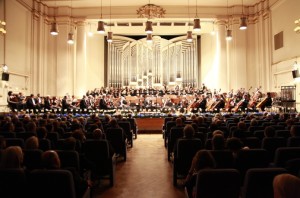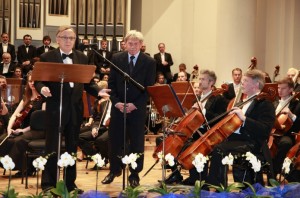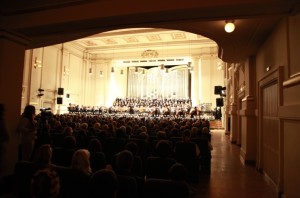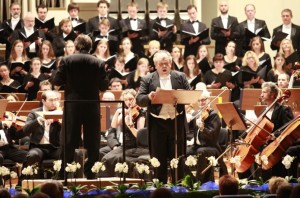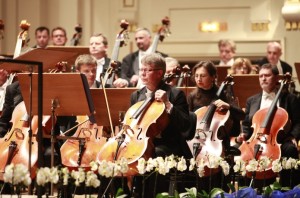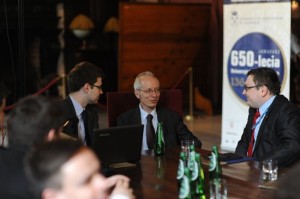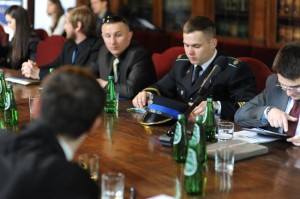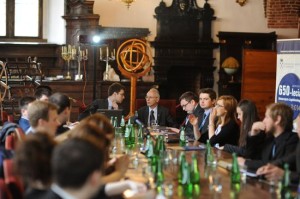The meeting of representatives of Coimbra Group, IRUN, Europaeum and Utrecht Network member institutions, held on May 9, 2014, was divided into two sessions. The participants tried to find answers to the questions: What is the strength of European higher education? What do we have in common? Are there any common European values belonging to our higher education that could be seen as constituting the foundations of European Academia?
They also wondered how to promote European higher education on a global scale, and compete with non-European universities: is it the right choice to offer European higher education as something unique and valuable (even at the expense of the position in rankings), rather than accept universal-global standards and values and try to compete globally without contributing anything "specifically" European?
Prof. dr hab. med Wojciech Nowak, JU Rector, opened the conference. In his welcoming address, he emphasised that Collegium Maius is the heart of the University, and that the walls inside which Nicolaus Copernicus studied over six hundred years ago are a perfect place to combine the past and the present and think about the role of the university in the rapidly changing modern contemporary reality, in which the greatest challenges that it may face are internationalisation and globalisation. After that, Prof. dr hab. Zdzisław Mach, Rector's Proxy for International Affairs, the debate's moderator, explained the genesis of the idea of the conference and the rules along which it will be conducted.
Founded in 1985, Coimbra Group is a network of 39 universities, including the oldest and the most prestigious universities in the world. The aim of the organisation is to make the bonds between the oldest universities in Europe stronger.
Inititiated in 2007 by Radbound University (Nijmegen), IRUN Network represents Westflälische Wilhelms-Universität Münster, Universität Duisburg-Essen, Radboud Universiteit Nijmegen, Pázmány Peter Catholic University of Budapest, Universitá degli Studi di Siena, Universitat de Barcelona, Université de Poitiers, University of Glasgow, University of Ljubljana and the Jagiellonian University.
The aim of IRUN is to constantly improve the quality of research and teaching through the exchange of students and staff as well as joint curriculum development and joint degree programmes for Master's students and PhD candidates.
Europaeum is an association of 11 leading European Universities (Oxford University, Universitat Pompeu Fabra, Universiteit Leiden, Università di Bologna, Universität Bonn, Graduate Institute of International and Development Studies Geneva, Université Paris I Panthéon-Sorbonne, Universidad Complutense de Madrid, Univerzita Karlova, Prague, Helsingin Yliopisto, and Jagiellonian University) and two associate members: Institute of Political Studies, Catholic University of Portugal and Fundación Ortega Marañón.
The network was created between 1990 and 1992, in order to support European history and culture studies, and to foster academic and student exchange between the partner institutions. Europaeum organizes workshops and summer schools (mainly for graduate and doctoral students) as well as academic conferences.
The Utrecht Network was created in 1987, whereas the Jagiellonian University became its member ten years later. The Network's essential targets and mission include increasing the role of student and staff mobility, development of teaching programmes, providing support to student summer schools and teacher courses, and promotion of European universities in the world.
Currently, there are 32 universities from 29 European countries collaborating within the framework of the consortium. During the last 25 years, about 20,000 students took part in its exchange schemes. Besides European partnership, the Utrecht Network actively cooperates with similar consortia in Australia and the United States.
Photo Marek Welzel
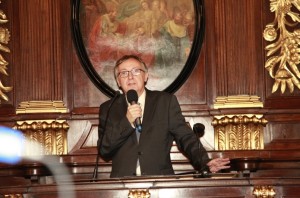
Konferencja Rektorów Uniwersytetów Zrzeszonych w Sieciach
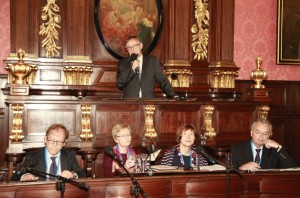
Konferencja Rektorów Uniwersytetów Zrzeszonych w Sieciach
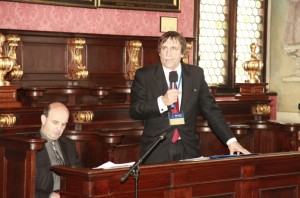
Konferencja Rektorów Uniwersytetów Zrzeszonych w Sieciach
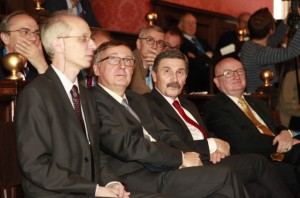
Konferencja Rektorów Uniwersytetów Zrzeszonych w Sieciach
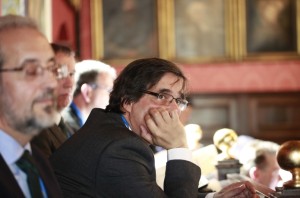
Konferencja Rektorów Uniwersytetów Zrzeszonych w Sieciach

Konferencja Rektorów Uniwersytetów Zrzeszonych w Sieciach

